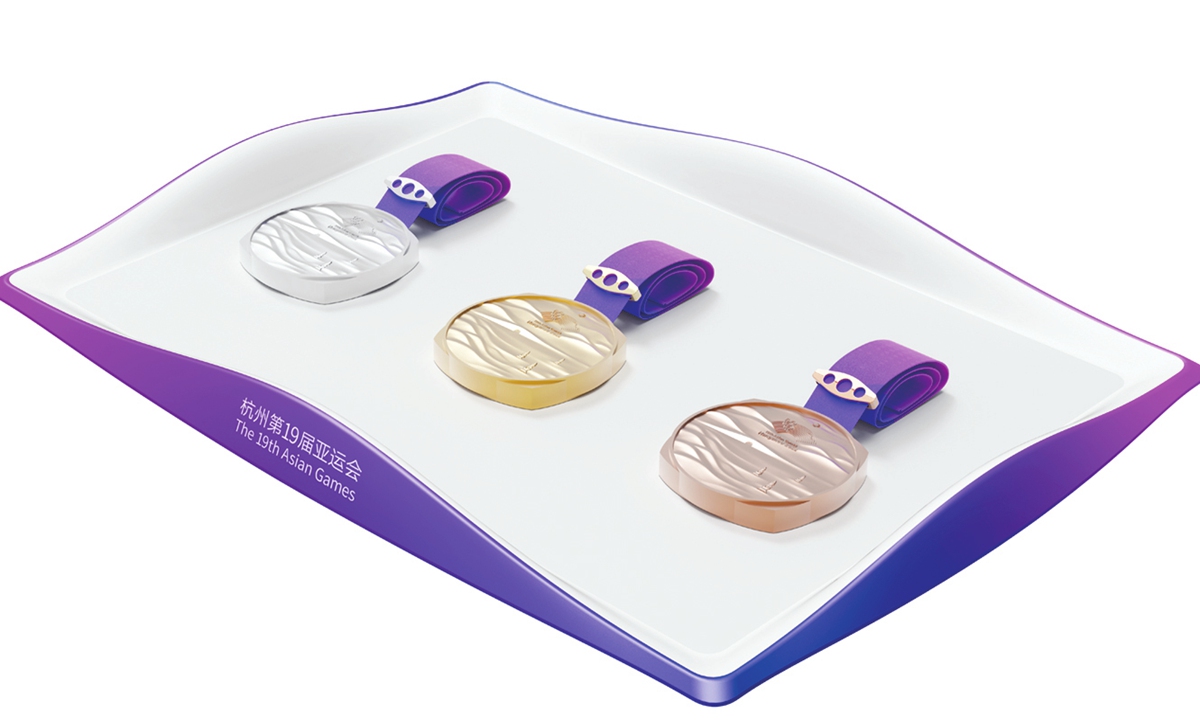The Hangzhou Asian Games, which will take place in Hangzhou, capital of East China’s Zhejiang Province from September 23 to October 8, will be the third Asian multi-sport event held in China, after the 1990 Beijing Asian Games and the 2010 Guangzhou Asian Games.
Ticket sales for the Hangzhou Asian Games have started on July 8, with tickets for events such as swimming and e-sports on high demand. The ticket price varies from 20 to 1,000 yuan ($2.75 to $137), with more than 60 percent of them costing less than 100 yuan, organizers said.
The torch relay for the Asian Games will start on September 8 in Hangzhou and hence commence a provincial tour in Zhejiang until September 20, said Chen Weiqiang, executive secretary general of the Hangzhou Asian Games organizing committee.
The organizers have made some adjustment to the competition schedule recently based on the athletes’ registrations, with a confirmed race schedule to be unveiled at the end of August, said Zhu Qinan, director of Sports Department of the organizing committee.
The Hangzhou Asian Games will also witness the debut of some emerging sports that are quite popular among young people, such as break dance and e-sports.
Weiqi, a mind sport, will make a return to the Hangzhou Games, after a 13-year hiatus since it appeared at the Guangzhou Games in 2010.
Certain regional sports in Asia, notably dragon boat racing, kurash, and sepak takraw, though not recognized as Olympic sports, will also be medal-awarded events at the Asian Games.
China is expected to send a delegation of over 900 athletes to the Hangzhou Games, as the Asian sports powerhouse is expected to dominate the podium once again. Since 1982, China has been sitting on the top of the medal table in each of the Asian Games it has participated in.
Several Chinese national teams have been preparing for the Asian Games, as they plan to defend their glory while facing off challengers from other Asian sports powerhouses.
China’s East Asian neighbors Japan and South Korea are also considered the favorites at the Asian Games, as the duo have often finished in second and third place on the medal table thanks to their excellence in swimming and archery respectively.
India will also challenge China’s dominance in shooting, as the country has been making efforts to improve the country’s shooting squad capabilities.

The Medal tray design for the Hangzhou Asian Games Photo: Hangzhou Asian Games organizing committee
Designs unveiled
In the lead-up to the sporting event, the design details of the victory ceremony components, including bouquets, trays, and podiums, were revealed. The official theme song and music video were also released and a commencement ceremony dedicated to the event’s volunteers was held.
On Thursday morning, the commencement ceremony for volunteers was held at Zhejiang University, with 1,800 representatives of a total of 37,600 volunteers expected to serve during the event in attendance.
The global recruitment drive for volunteers for the Hangzhou Asian Games and Asian Para Games was initiated in May 2021, with 317,000 applications received.
“We’re fully prepared to execute each process, step, and detail in our volunteer service to contribute to this grand event,” said student volunteer representative Zhao Hongyan.
The volunteer body is primarily comprised of individuals from 46 universities within Zhejiang.
Additionally, specialists in fields such as sports, less-commonly spoken languages, and medicine were sourced to provide much-needed assistance during the event. Around 400 volunteers from other provinces among others joined the effort.
The floral bouquets for the awards ceremonies were named “Fruits of Triumph,” and included rice ears and lotus pods, representing harvest and achievements in Chinese culture, along with the iconic “Rainbow Purple” showing the event’s core color palette.
Unique to 2023’s Asian Games is the inclusion of decorative vases inspired by huagu, a kind of vessel from the Southern Song Dynasty (1127-1279).
The Dongyang wood carving, a national-level intangible cultural heritage, was also employed in the vessels’ crafting. The undulating water patterns on the vases echo the rhythm of Zhejiang’s landscape, and could be kept by award-winning athletes and treasured forever.
The design of the medal trays was inspired from the gentle ripples of West Lake’s waters in the breeze.
The outer part of the podium mimics the color scheme of the “Rainbow Orchid,” while the stage itself is adorned with an “Ink and Watercolor White” hue. A modular design approach is employed for the podium to accommodate various sports, embodying the spirit of sustainability.
The song The Love We Share, performed by famous Chinese singer Sun Nan, has officially been endorsed as the Games’ theme song. The song’s music video portrays iconic landscapes from across Asia, showcasing the unity of people from diverse backgrounds and regions.






















